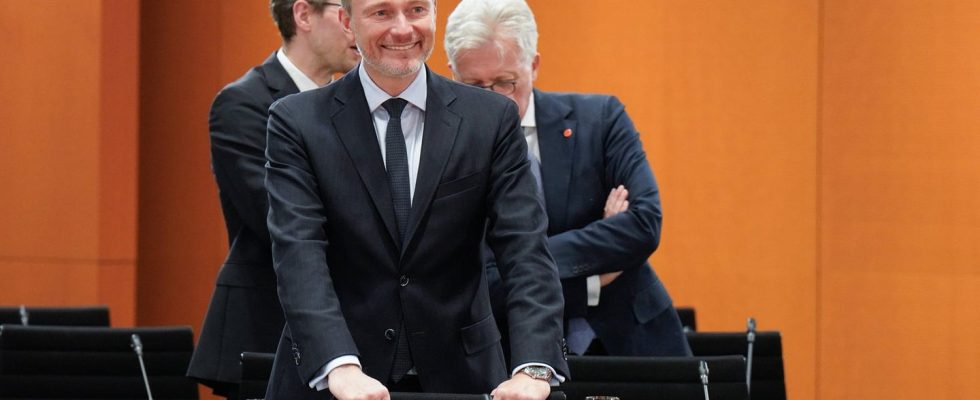Party anniversary
A master of political near-death experiences: The FDP is celebrating its 75th birthday
Big smile on your birthday: FDP leader Christian Lindner
© Bernd Elmenthaler / Imago Images
She was declared dead several times. Today the FDP celebrates its 75th birthday. A look back at turbulent decades.
The ability to suffer and strong nerves have always been part of this party. The constant worry about the five percent hurdle and the fear of political survival characterize the history of the FDP, which was founded exactly 75 years ago on Monday. As an expert in mastering political near-death experiences, no one can fool the FDP. After all: the woman celebrating her birthday is still alive – and from this fact alone, today’s beleaguered top liberals should also draw hope for the future.
On December 11, 1948, the liberal parties of the western occupation zone merged to form the FDP in Heppenheim, Hesse. The FDP has always been a small party – but also one whose influence on the fate of the Federal Republic was often far greater than its election results suggested.
“The FDP has been a very formative, influential party over the past 75 years, both in terms of domestic and foreign policy,” says politics professor Thorsten Faas from the Free University of Berlin to AFP. “You just have to look at how many years of government the FDP has had at the federal level, but also in many states.”
Since the early 1950s, the FDP had cleverly positioned itself as a kingmaker at the federal and state levels, helping sometimes the Union and sometimes the SPD to gain a government majority as a small coalition partner. For this she was rewarded with influential positions and political power.
Leftists send critical congratulations to the FDP
The FDP has retained its ideological core over the 75 years: advocacy for the market economy, combined with a progressive stance on social issues – this is what sets the party apart from its competitors. “The FDP’s classic package was and is to combine an economically right-wing position with progressive social policy around the concept of freedom,” says election researcher Faas.
The FDP’s offer was not always well received by the electorate. She was repeatedly declared dead, but she survived – much to the chagrin of her critics, for whom the FDP is the epitome of heartless neoliberalism. Martin Schirdewan, head of the Left party, believes the FDP is outdated. “For the left, which is calling for the reintroduction of the pension at 65, the FDP would already be retired,” Schirdewan told AFP.
Despite all the distance, Schirdewan sends a critical “congratulations” to the FDP’s anniversary: ”Your liberal concept of freedom should not be limited to heat pumps, speed limits, debt brakes and the welfare state. The FDP would be well advised to reflect on forgotten left-liberal times.”
Schirdewan is alluding to the 1970s, when the FDP was at the zenith of its reputation – with popular chairmen like Walter Scheel and Hans-Dietrich Genscher and liberal thought leaders like Ralf Dahrendorf. At that time, it had come a long way from its founding year in 1948, when the FDP was a rallying point for national liberal forces – and also many ex-Nazis.
From the opposition back to the government
In the 1980s, the FDP moved closer to the Union again as Chancellor Helmut Kohl’s government partner. Their profile narrowed to economically liberal positions.
After the end of the Kohl government in 1998, the FDP was in opposition in the federal government for many years. Elections were lost in a row, and in 2013 she was even thrown out of the Bundestag – a “deep, traumatic turning point” for the FDP, as politics professor Faas says.
Two years ago, the FDP took the “traffic light” risk. She returned to the federal government, where she sees herself as a free-market corrective alongside the two more left-wing coalition partners.
The “traffic light” is an experiment whose outcome is open. “Success is not a given for the FDP, and co-governing in the traffic lights is not easy for the party,” says election researcher Faas. “The party is correspondingly nervous.”

